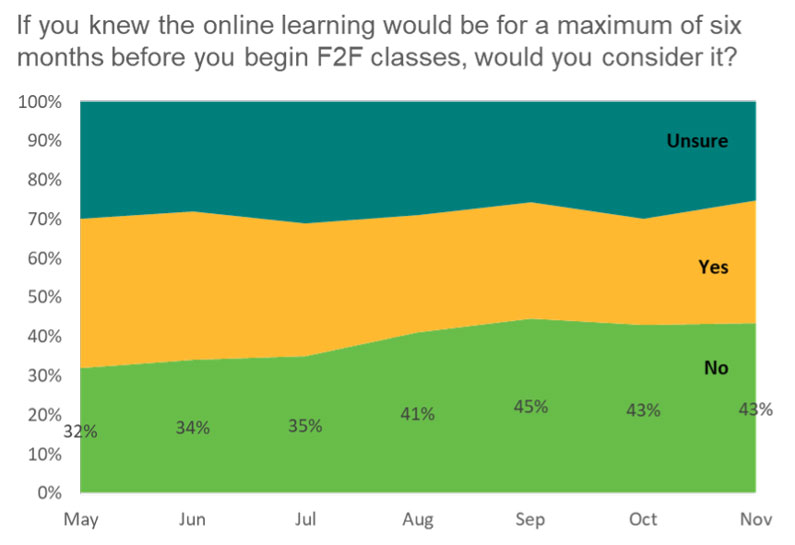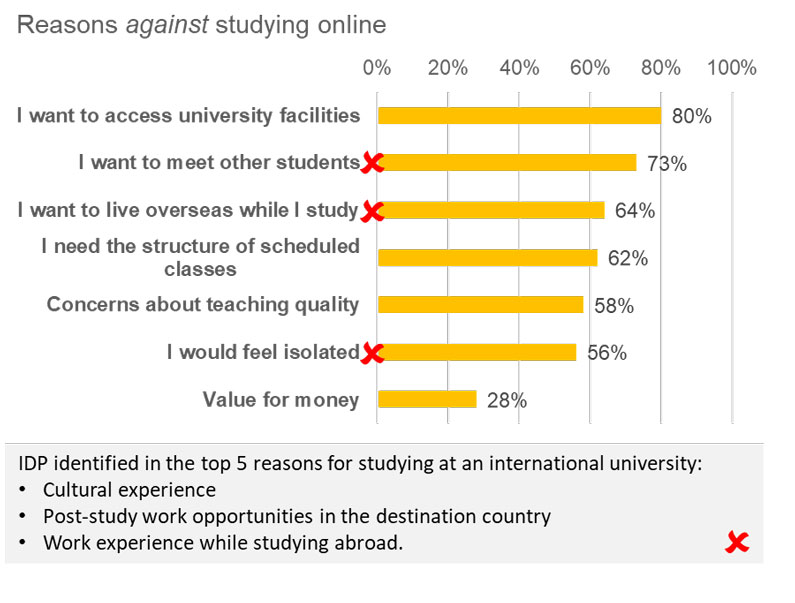Road to Recovery: Reason to be optimistic #2

While the pandemic continues to cause uncertainty for the mobility of international students and the short-term future of the global education sector, you could be forgiven for having a pessimistic outlook. However, our Road to Recovery work which considers global data trends from across the sector and insights from our own agent community, gives us reason to feel more confident about the recovery of international education.
In this series of Insights pieces, Jon Chew (Head of Strategic Insights and Analytics at Navitas) shares five reasons to be optimistic, which were initially shared at the Navitas Virtual Business Partners Conference held in January 2021.
Reason to be optimistic #2: New opportunities for global education will expand (not replace) the existing market
COVID-19 has been a catalyst for many universities to accelerate towards online delivery and models of transnational education (TNE), both of which are set to become positive legacies of the pandemic.
But while flexible modes of delivery are expected to become the norm, more recent surveys show that the acceptance of exclusively online delivery is unlikely to be sustained. Results from the QS survey show that even as a temporary measure, online learning is becoming less tenable with each passing month. As international students start to get a glimpse of the light at the end of the tunnel, their keenness to resume classes face-to-face will come to the fore.

Source: QS Higher Education In 2020: How Covid-19 Shaped This Year (February to November)
The clear implication of this is that online delivery (and to a lesser extent TNE) will more likely ‘grow the pie’ and increase global access to a wide variety of institutions. At the same time, there will likely still be 5.5m+ students studying overseas for whom the core reasons for studying in another country cannot be replicated online.
As many studies have shown, the resistance to online is in part due to questions around quality of the academic experience, technological barriers, cultural acceptance, and the discipline required for self-study. However, for international students there are more fundamental concerns. As the 2020 International Student Survey showed, international students go abroad to pursue an education — not merely for the academic outcome — but for social, cultural, personal and professional growth. Studying overseas is a transformative experience, one that is not likely to be replicable in a digital environment for some time yet.
One further driver for studying overseas that is not often articulated is the quest for personal and family prestige – which is similarly not going to be achieved in the online mode.

Source: QS International Student Survey 2020 (n=78,600), IDP Digital International Student Survey 2019 (n=1900)
In summary, evidence suggests that the alternative delivery options that have flourished during the pandemic, in particular TNE and online delivery, will ultimately improve the affordability and accessibility of international education. There will still be more than five million students studying overseas for whom the social, cultural, professional and positional reasons for studying in another country cannot be replicated by the new alternatives.
This Insight article is one in a series of five reasons to be optimistic. Read the full article here.